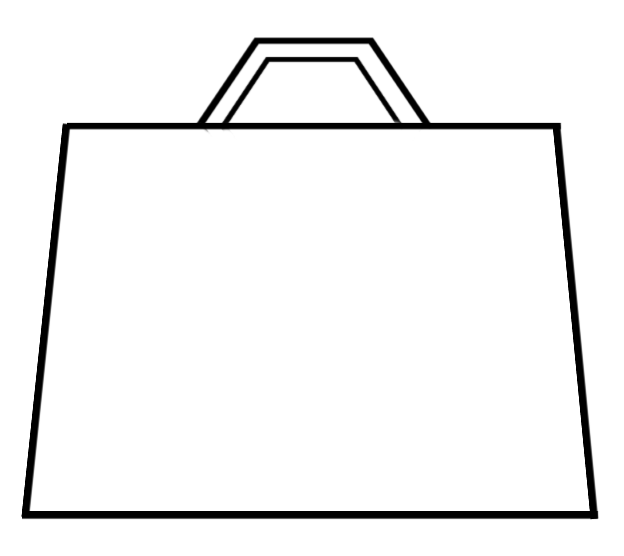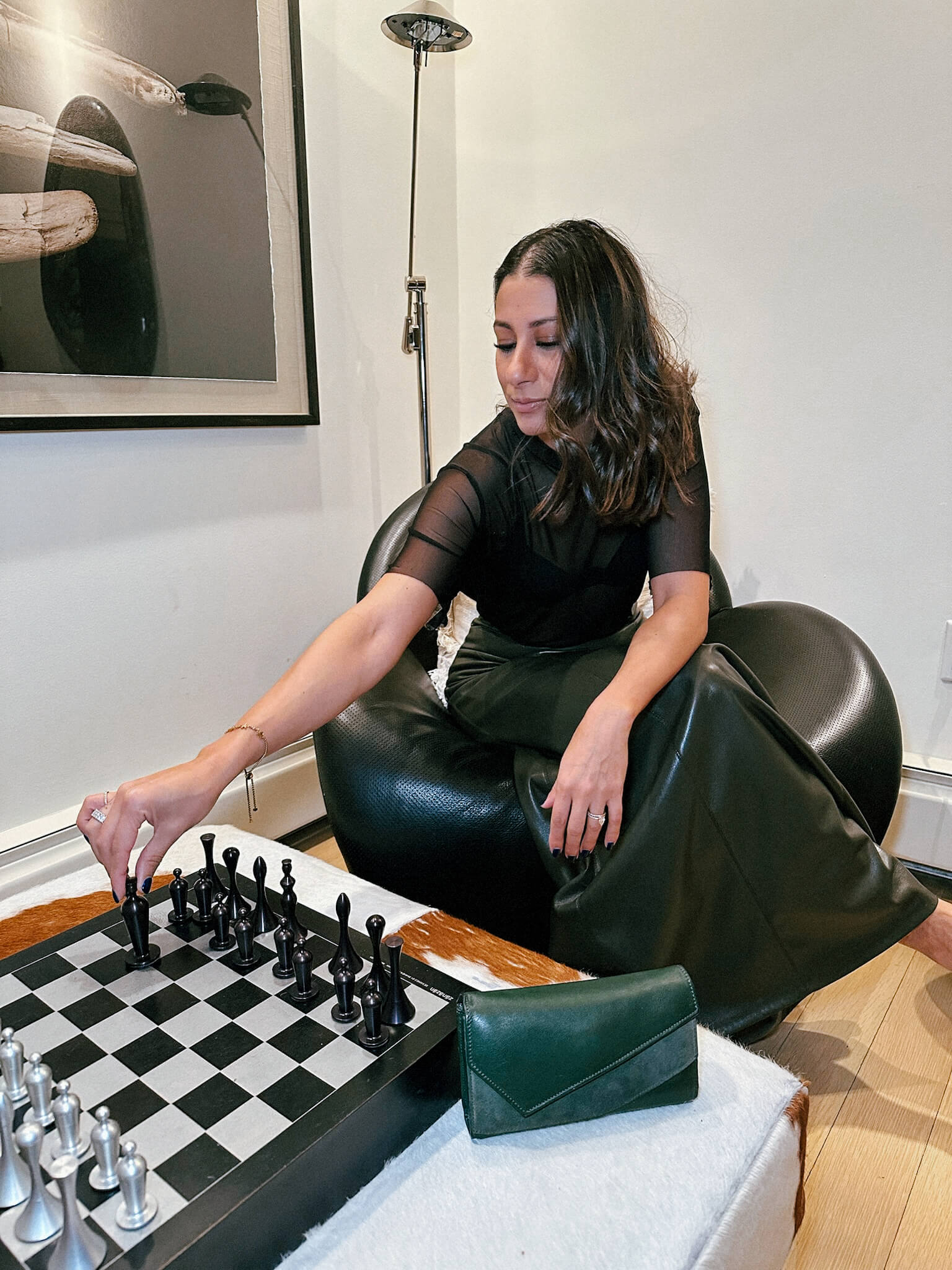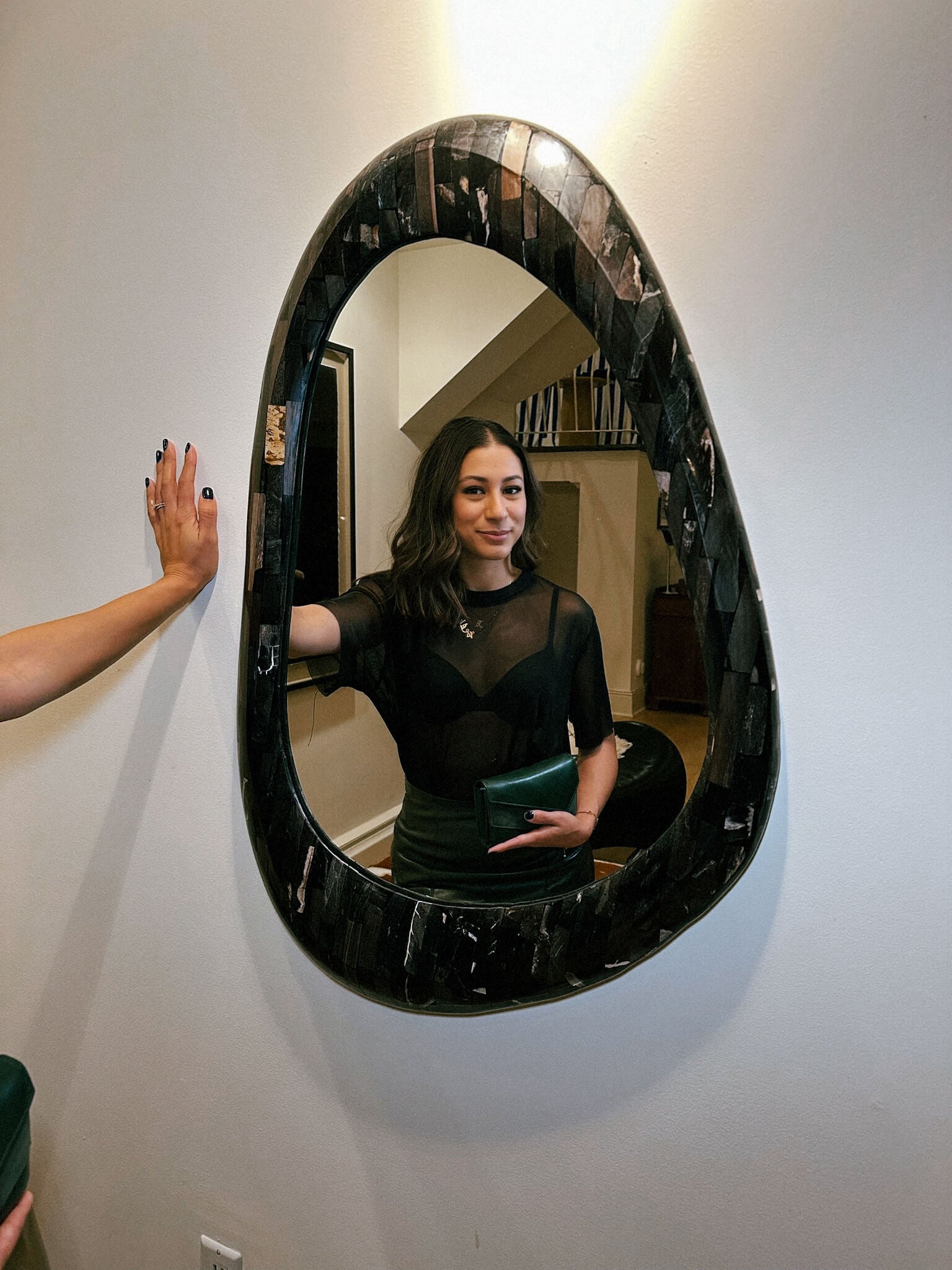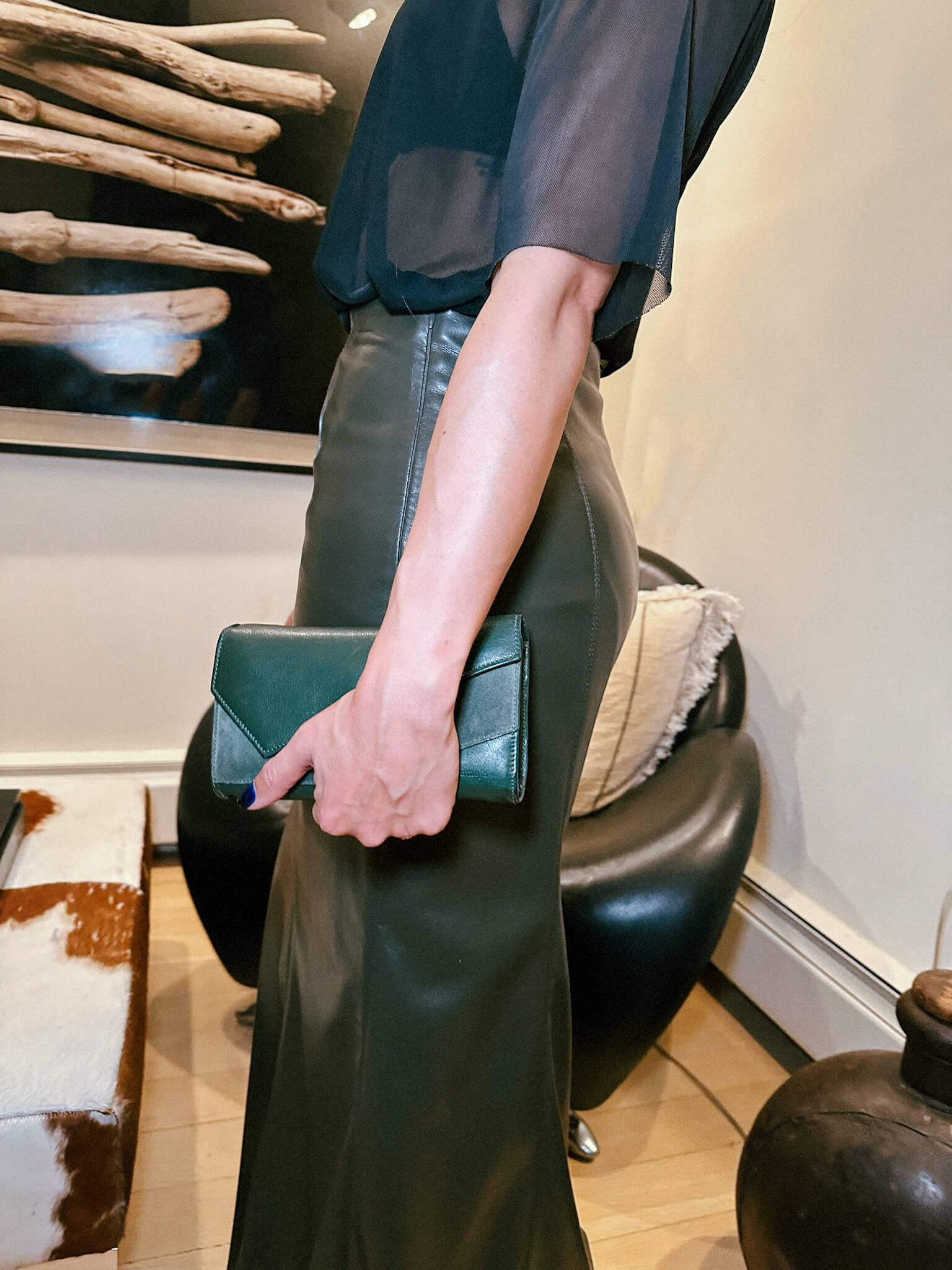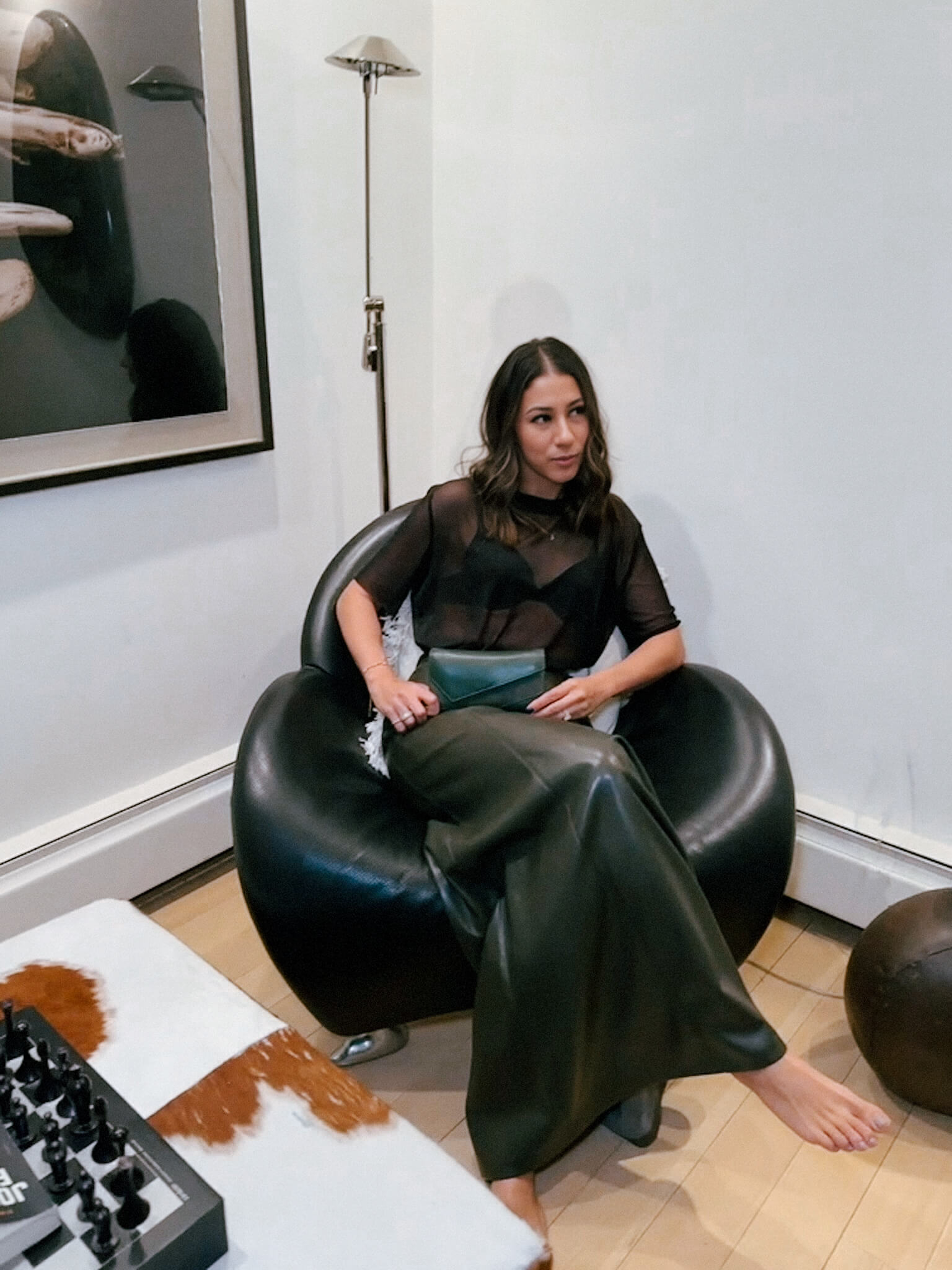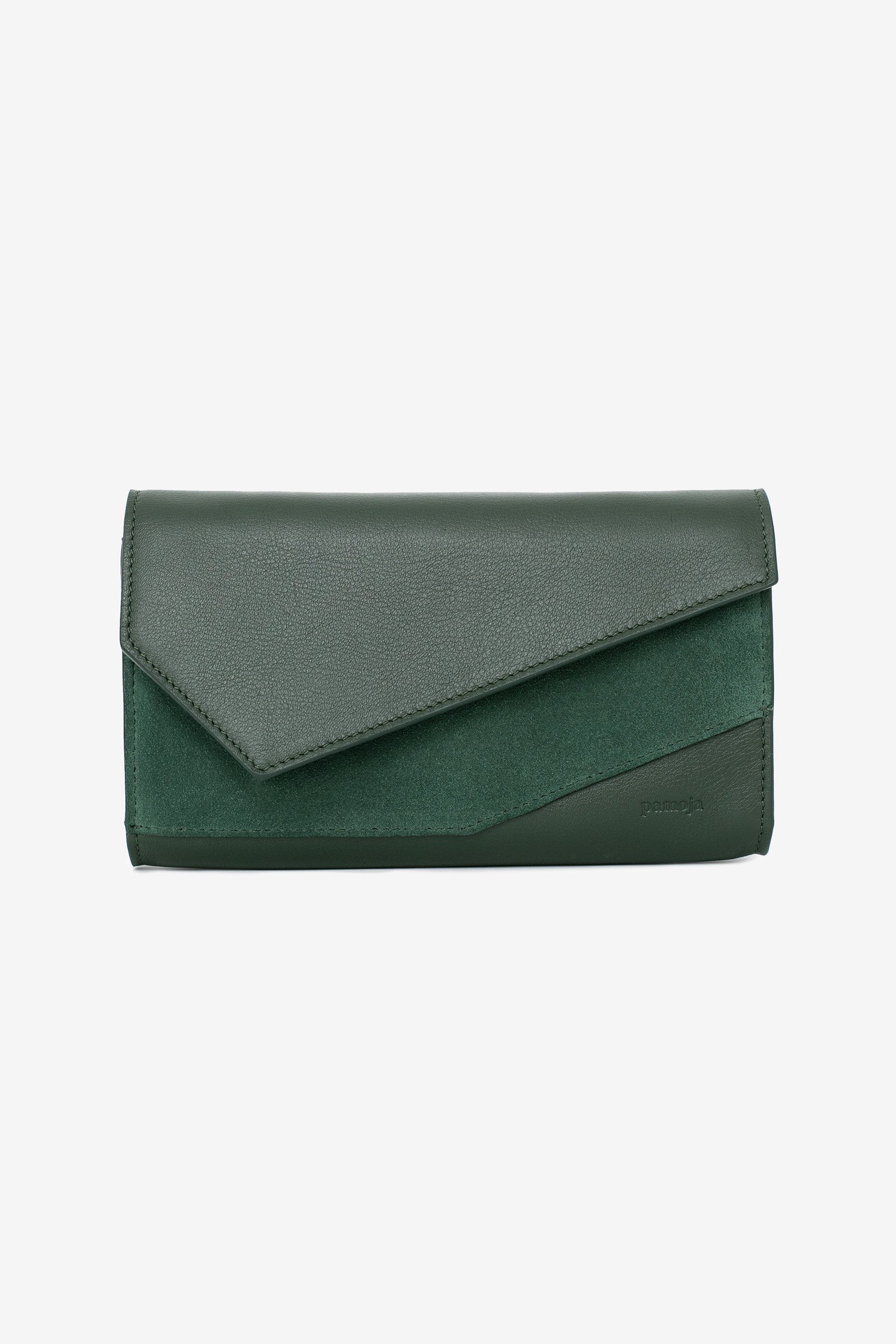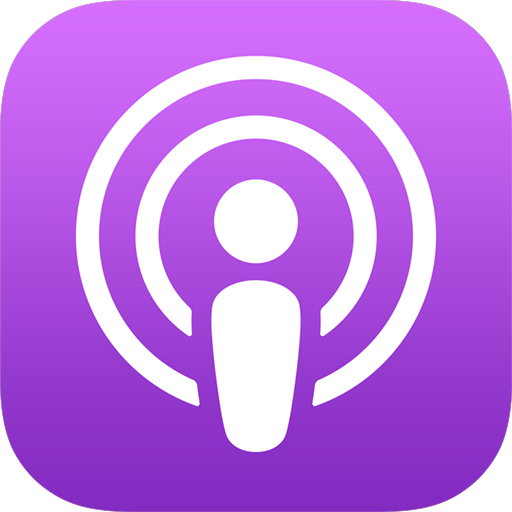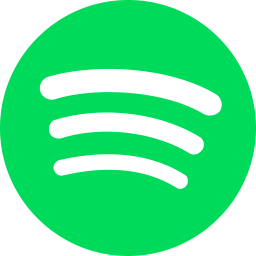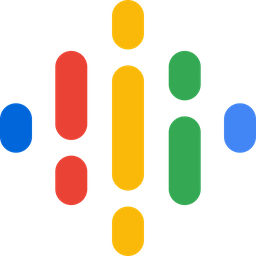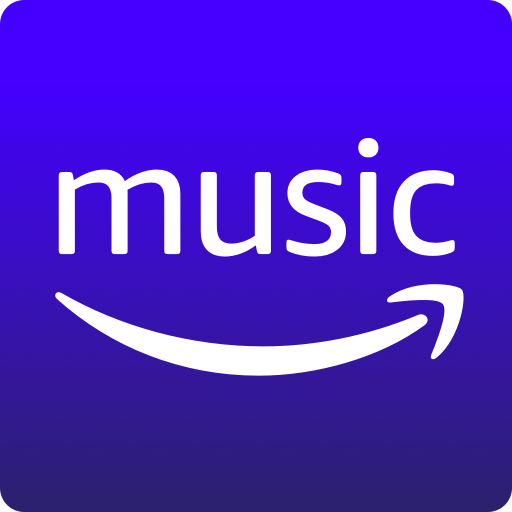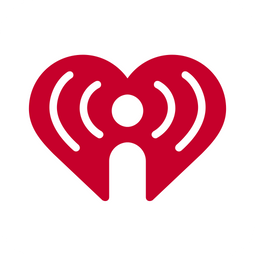14 | Jovanna Youssef Hill: The Power to Write Your Own Story
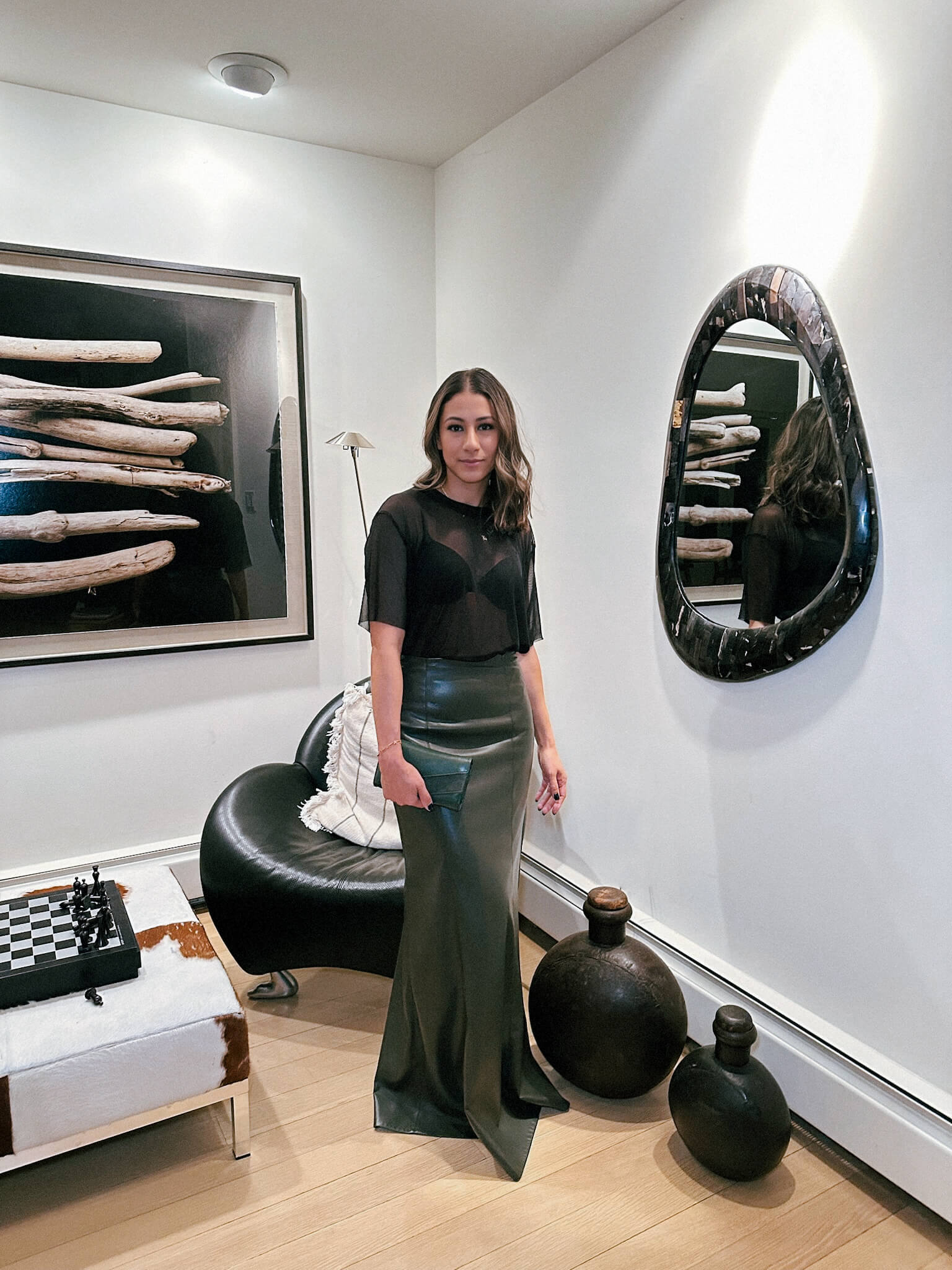
14 | Jovanna Youssef Hill: The Power to Write Your Own Story
Born in Cairo, Egypt with aspirations to become an archaeologist, Jovanna later shifted focus stepping into the world of business launching a career in consulting, eventually merging her interest in technology and retail leading teams at Apple and Rent The Runway.
In addition to being a highly motivated career driven individual, Jovanna shares how she entered a new phase in life in 2023, becoming a mother while being intentional with prioritizing self and family.
Jovanna is a woman of many hats that will leave you motivated to explore your untapped potential.
Topics Covered:
- How my American and Egyptian upbringing molded me
- Career: Following the impact and the importance of sponsors
- Transitioning into motherhood
- My Partner/Husband is my secret weapon in balancing life
- Utilizing systems to measure personal goals and outcomes
- Fitness for longevity, stamina, and mental health
- Acknowledging it’s ok if I didn't achieve the goal as long as I made progress
- Importance of keeping receipt of your wins
- Leaving space for the unknown/untapped opportunities in your life
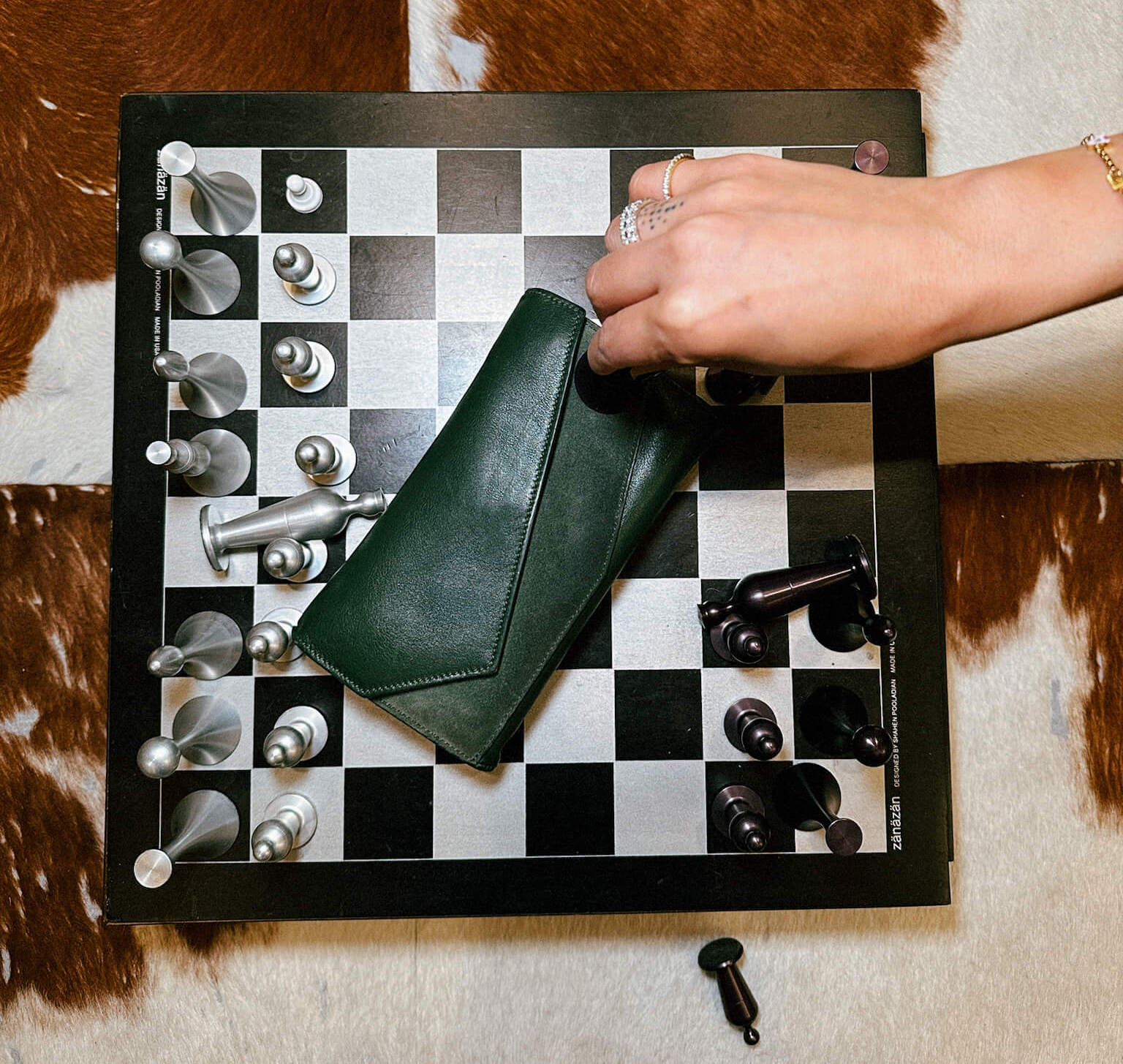
- How my American and Egyptian upbringing molded me
- Career: Following the impact and the importance of sponsors
- Transitioning into motherhood
- My Partner/Husband is my secret weapon in balancing life
- Utilizing systems to measure personal goals and outcomes
- Fitness for longevity, stamina, and mental health
- Acknowledging it’s ok if I didn't achieve the goal as long as I made progress
- Importance of keeping receipt of your wins
- Leaving space for the unknown/untapped opportunities in your life
Explore Our Podcast
Transcript
Jovanna Youssef Hill: I'm here in this world today to prove to myself what I'm made of. this is it. This isn't like a dress rehearsal. This is life.
I don't want to look back and say I had so much untapped potential.
Stephanie: I am Stephanie Evans and this is Diaries of a Modern Trailblazer. Take note of the journey and be inspired to forge your own amazing path.
Stephanie: In this month's episode, I am delighted to have my dear friend Jovanna Youssef Hill, whom I met while living in LA, where we both attended business school at UCLA Anderson. And this woman is a force to be reckoned with, and you will understand why during this conversation. So first and foremost, thank you so much for joining us today.
Jovanna Youssef Hill: Thank you so much for having me. Um, I'm so, so excited to be here. Um, and like any chance to catch up and talk to you, it's always the best.
Stephanie: Likewise. So before we dive into the now, give us context and background of who jovanna is.
Jovanna Youssef Hill: So I am the daughter of Egyptian immigrants. I generally leave with that because I think it's like shaped so much of who I am. I was born in Cairo, both my parents are Egyptian. They immigrated to the U. S., shortly after I was born, so like as adults.
I have three younger sisters, that's also something that's really shaped me as a person, um, you know. And yeah, I I'm a daughter. I'm a sister. I'm a wife. I'm a new mom. And yeah, that's me.
Stephanie: I learned something new. I did not realize you were born in Cairo.
Jovanna Youssef Hill: Yeah, I was. Um, I know that's a fun fact. People don't really realize I have dual citizenship. Um, I've spent some time there. Uh, like, as an adult. So I, like, I see that part of the world is, like, so near and dear to my heart being from there, but also having, like, spent a lot of time there as an adult. Yeah, like, can't wait to go back.
I can't wait to take Ayla when she's of age. And like, I think one of the most formative trips of my life, I went back when I was 10, and my parents took us on a two month trip. And I got to see all the things that you read about in books, like in history about Egypt. And just to be like, wow, that's like where I'm from, um, was just like really impactful.
So I feel like really, really connected to that part of the world.
Stephanie: That's amazing. So you basically spent a lot of your life I mean, as we think about your age today, most of your life in California in LA, correct? Or was it just, okay. And then also it sounds like you had the opportunity to spend some time in Egypt.
How did living in both of those places and spaces help form who you are?
Jovanna Youssef Hill: I think this also just comes with being the daughter of immigrants, I think, like being exposed to one, like L. A. is just like a melting pot of a place. There's people from all different backgrounds. And like Egypt, just like primarily different, but it was just, it's a very different like culturally and, um, from just like a life perspective.
But I think experiencing both, I just have a, I feel like a deeper, like awareness and empathy for life outside of the U. S. where like, if you haven't been outside of the U. S. or spent time outside of the U. S. or, like, lived outside of the U. S. Like, um, I think there's just a sense, like, that this is, uh, like, the best of the best, and this is, like, the way life is meant to be, and, like, this is a model, you know, place to live and be, and I think just, like, being exposed to other places, um, has just, like, expanded my world view, and I think, like, uh, it's also made me, like, really, I think, critical of, um, Like anything and everything of governments of, um, just like ways of life.
The biggest things have been, I feel like I can deeply empathize, uh, just through being exposed to different people and seeing different ways of life.
Stephanie: So as you got older thinking about career, because I always love learning about people's career trajectories. What did you think you'd be when you grow up versus where you are now today?
Jovanna Youssef Hill: I actually have these distinct memories as a kid of like me, like changing my mind about things that I wanted to be. And I just remember them very clearly.
But, there were like three things I wanted to be growing up. The very first thing I remember, really being interested in was archeology. And I think that was just, cause I was so enamored by like egypt and Egypt from there. And at that age, when I was much younger, I hadn't spent a lot of time there yet.
So I remember, thinking that was like a career path that I thought would just make me feel more connected to that part of who I am.
Stephanie: Most definitely.
Jovanna Youssef Hill: Yeah. And then I think through like brainwashing of my parents I thought I wanted to be a pediatrician, which like a lot of immigrant parents are like a lawyer, a doctor, engineer. And I was like, okay, I'm definitely gonna be a pediatrician. I don't even really like science that much, so I quickly outgrew that.
And then I, I really remember thinking, um, I want to be like a business woman. And I don't even think I knew what that meant. I just equated a woman in a suit as like a boss. And I was like, that's what I want to be, because that to me was like— you are powerful, you are successful, um, you know, you were, you made money and things like that. And I was like, okay, I don't want to be a business woman without actually even knowing what, what that, um, but those are, I think the, the three different like journeys I went on as a really young kid of things that I wanted to be.
And now it's funny, cause like, I have this idea of like this woman, or I had this idea of a woman in a suit and like, I would never work in a place where I had to wear like same. So like in that, in that sense, that has changed a little bit. Um, but yeah, those are, those are like the three things I remember thinking I was going to be when I grew up.
Stephanie: How did that evolve as you got older?
Jovanna Youssef Hill: Yeah, I started out my career wearing suits, in consulting. And then my career journey has been, I think I have, like, I've lived a few different lives from a career perspective.
I feel like every few years I decide to, like, change functions, change industries, which now, having just done it again, like 3 months ago, I'm like, I don't know why I keep doing this to myself. It's like learning a new skill set. Onboarding, honestly it can be, it can be challenging, but I've really enjoyed it because I feel like I kind of like built this diverse skill set. My hope is eventually I want to build a company of my own, like all of this, like really, you know, becomes valuable.
But yeah, I started my career in consulting, wearing those suits, decided that wasn't really for me. I didn't love client service and the type of work that I was doing. And I went back to business school, and wanted to switch into product management. I loved the design tech business aspect of that. And so I went to Apple where I was like a lead for the Apple store app, which is like the e commerce app there. So that was really my first foray into like retail through a tech lens. Did that for a few years, had the opportunity to take more of a product marketing function at Rent The Runway, which got me closer to like a passion area of mine, which is fashion, but still through a tech lens.
And I did a career pivot there. I went to product marketing, kind of grew in product marketing there and built up the function there. And then eventually I expanded my scope to oversee all of brand and marketing at rent the runway. And so that was like another kind of career change. And I had to like really learn more about brand and marketing overall, like learn how to manage and lead a big team.
And then most recently. I started a role at Hims & Hers. I'm a category growth director, which is essentially like a GM function overseeing the new weight management category that we just launched. So that's really fun. That's like a zero to one kind of get to like launch and scale a product.
I think the most rewarding thing so far in this, like, new role over the past few months is that I'm sort of seeing, like, the fruits of my labor of all the time invested in previous roles and all of my experience of, you know, now, like, the years and years of, of working, um, and I see, I'm seeing how, like, those skills that I developed early on are directly applicable, and I can quickly ramp up and add value in a new space and a new industry. And that's just been really rewarding. Like I find the hit moments where I'm like, Oh, I kind of like know what I'm doing," so it's a nice mix of challenging, cause I'm learning a new function and a new space and healthcare.
Um, but I'm also like finding that my previous experience has been incredibly helpful and relevant, and allowed me to have an impact.
So my consulting job was the last job that I had wore suits. And I'm probably never going back to that. And now I'm like, kind of in like different spaces still within tech though.
Stephanie: I love that for you.
And I remember going back to business school, I, I bought a suit because I was like, I feel like I'm probably going to need to wear a suit for something in a class. And it was a challenge because. I didn't like what I saw in terms of suits and I mean, I found something great at theory, but yeah, it's just not, it's not the vibe.
It's not the look for me.
Jovanna Youssef Hill: Yeah. Well, it's funny. I started wearing suits while working at Rent the Runway, but like, more fun kind of out there suits. Yeah, colors and textures and patterns and like with sneakers, so I could have like a lot more fun with it working in fashion. So that's probably like as far as I would take it, but like the suits and kind of the the clothing that I wore like in consulting, which was the typical like blue black, like really, um. Just kind of what you expect, like working in consulting or banking and stuff like that. Um, yes, not, not my vibe anymore. And I also just much that I loved and didn't love the way I looked in them and all that.
Stephanie: I love hearing about your career journey because you've done so many different things and it's. It's refreshing because sometimes we, we like to keep ourselves in a box and try to climb up a ladder within just a linear path, you know, and not realizing that we can get to where we want to be, but it's not necessarily a straightforward path.
Jovanna Youssef Hill: Yeah.
Stephanie: And through those experiences , you've learned what you like and what you don't like.
Jovanna Youssef Hill: Totally. Which I think people don't talk about enough, like that's like a really important part of like, of, I think of the career journey is figuring out. I think it's just as important to figure out what you don't like and don't wanna do as it is to find out what you do wanna do.
Um, and so I think there's like a lot of value in staying really open and uh, one of my career like philosophies is to follow the impact and that's actually guided a lot of these decisions. And what that means is, like, I've always wanted to work on the high priorities for a business or company, or the areas with the biggest growth opportunities and things like that.
For example, when I went from product marketing to head of brand, integrated marketing was at a time where, um, the company I was at was starting to invest more in that as a function and to see the power of brand. And I was like, Oh, great, this is going to be a focus and investment area for the company. That's a space that I want to be in.
That's what generally guided a lot of my decisions. Uh, and I, it's just helped me one, just like be exposed to really great work, but also work on like high priority parts of businesses and have, like, have a big impact.
Stephanie: Yeah, and then just circling back to around how this diversity in experience has helped you learn what you like and what you don't like. I think it'll be great to share what's the best job you've had and the context of why.
Jovanna Youssef Hill: The best job I've had.
Stephanie: Yeah, thus far might not be the best job in your overall career, but yeah, when you think about it.
Jovanna Youssef Hill: I hope the best is like, um,
Stephanie: right.
Jovanna Youssef Hill: I think like, it's hard to say. There are the best elements of different roles. Um, and I was just like exposed to different things. I'd say the one consistent whenever I've had a great career experience is I have felt really supported and I've had people that have like really poured into me. And I've been fortunate that I've like had sponsors at different places that I've worked and people that have seen something in me that maybe I didn't even see in myself. And that's really instilled competence in me and that's what's empowered me to like learn new functions, take on new roles and things like that.
And I've had that so far at every career, like every job that I've had. Um, but I think they were like. They were the best for different reasons. Apple was for me working on a really innovative company and seeing the impact that that company has on the world. And anytime you'd launch something, it would go live, and you know tens of countries you've launched in several languages, it would touch millions of people. The sheer scale of the work that you were doing was so impactful and that was just so incredible to be exposed to at that age. I think a little bit younger coming out of business school.
At Rent the Runway it was so awesome because I got to, for the first time in my life, really marry a passion area of mine, fashion with tech. And there were days I'd be sitting in meetings and thinking, like, I can't believe this is my job. The things that you'll be reviewing or talking about, or the research that I would do. It just felt like easy and fun. Um, and so like, that was a really awesome job.
And then now in my current role, it's awesome for some of the reasons I mentioned earlier, which is like, I'm seeing how my previous experience are allowing me to be impactful in a different place and learning.
I just get so energized by like learning a new function, uh, and learning about a new industry, like healthcare is so fascinating, and the weight management space is so fascinating right now. It's just been energizing to learn about something new, so they all have had some really positive, aspects of them.
Stephanie: That's great. It's always great to be able to pull out those most important career shaping experiences throughout all of them, because you can learn something when you move from career to career or role to role, and it's it's important to be able to do that.
And, you know, as I think about where you are now, you did make a career transition, and it was a really thoughtful one. We spent some time offline, off this conversation, discussing the importance of going where you're valued. So, when you decided to make your latest career shift from Rent the Runway to Hims & Hers, what made you decide to make that transition?
Jovanna Youssef Hill: Yeah, I think I was just generally at a transitional period in my life. As a new mom, had a lot of time to think about, you know, how I wanted to show up as a mom. I had a lot of time to think about that because I was, I was on maternity leave for five months.
And I think I just, knew that this next phase of life was going to demand a different Jo, honestly, like a, or maybe a evolved Jo. And I think motherhood does that to you. And I, I think I just knew like my day to day had to look and feel a little different to allow me to show up in the way that I wanted to show up in, like, especially like this initial, like year of Ayla's life.
Um, so I, and, you know. True. And I've always thought about like living other places and stuff like that. So this was like a remote opportunity. Um, so allowed me just to be more present, I think as a wife and mom, while still not feeling like I'm letting off the gas of my career. And I think that was just like the balance that I was really looking for. And that this job was kind of able to afford me.
I was trying to think about my next role as like, how can I fill in any like gaps in my skill set or gaps in my, like on my resume and things like that.
And, this role, there were some, it was going to stretch me, but it was also allowing me to like leverage the skills that I've developed. And, but I was also going to be able to fill in some gaps and really energized and excited by that. And then I was like, okay, fast forward. What do I wanna be doing in five to 10 years?
Um, potentially continue down a, like a corporate path, but also potentially like start and build something of my own. And I was like, okay, what skills do I need for that? And I was like, oh, like launching and growing a business, which is kind of like what I'm able to do in my current role.
I'm gonna learn a lot about launching and scaling a business. And so that was an area that I wanted to really grow in.
I took into consider consideration like all of those different aspects.
Stephanie: , It's a lot of different aspects there and, and it does sound like you are starting to fill in the gap in those spaces where you're looking to gain more of that skill set.
So I want to circle back on motherhood. Uh, you mentioned that you became a mother, and you had your first daughter, Ayla in April, I believe. Is that correct?
So with motherhood, I mean, that's, that's quite a transition in life. What has been the most surprising thing for you?
Jovanna Youssef Hill: I think the most surprising thing is kind of like how quickly you adapt to all of it and people, you know, people talk about that, but I think experiencing it has been a different, a completely different beast.
Like the human body and mind is just so fascinating. Things that I couldn't fathom being able to handle pre baby, um, you just kind of. I was going to say seamlessly transition to is not seamless, but you just transition to and you, um, you kind of figure it out. And I think that's just been really surprising.
I think I also, I expected like much more resistance and it's not the easiest thing for sure. Um, but you do just naturally, like, you, you kind of like, you, you have to adapt. I'm just kind of surprised how quickly it happens and how and like women's intuition is like a real thing.
And you just there are things you just know, and for everything else you don't know, I Google things like, there's a lot you don't know, um, and like, Google's your best friend and you just you take it day by day. Like, I couldn't tell you what Ayla is going to need from a developmental perspective like at one year old, but I know what she needs like over the next month and then each month I'm researching the next month and so you're just kind of like it's just like milestone by milestone and um and you're just kind of adapting and how much they change, which is why I think you have to be adaptable. They change so much and like really fast.
It's like, as soon as you think you crack something and figured something out, there's like a new kind of challenge or milestone or whatever, and you have to adapt and quickly figure that out. So I think that's just been really fascinating.
Stephanie: Yeah, I can't wait to meet her.
Jovanna Youssef Hill: She's really sweet.
Stephanie: And, and just a little insight into Ayla, like, what would you say is the funnest part about the stage that she's in right now?
Jovanna Youssef Hill: Her personality is really starting to come through. And it's so hard to wrap my head around because like she's only eight months old. She's a baby. She doesn't talk yet, but I can already get a sense for like a little bit of personality. She's just like funny and she's curious and she's really happy. She's like a happy smiley baby, and it has been amazing to see that come through. Cause as a parent, you, you want a happy kid, and I'm just getting started, but it's just nice to see that she seems happy and she's like really adaptable. She can go on trips. She's been flying since she was like eight weeks old. Um, so she's just, she just kind of rolls with things and she can hang with, with people and she's, you know, always smiling and laughing at people. Um, so she just seems like happy and curious and open. But I'm starting to see, I think at this age, they're really starting to make sense of the world around them.
There's some really big developmental things that happen at this age. And so I'm, I'm seeing it live, like where. She's just more curious, and you can see things are starting to like, click in some, in some ways. And it's just like, really. Incredible to watch.
Stephanie: Yeah, that's so cute. And I love seeing the photos that you share of her on social media.
So I feel like I'm, I'm seeing Ayla grow from a lens. Yeah. And personally, these eight months of motherhood, how have they allowed you to evolve as a person and change your overall perspective in life?
Jovanna Youssef Hill: Yeah, I was reflecting on this the other day and I was talking to Dru about it. I find myself asking myself often, what will my daughter think of the things that I do or my beliefs or the actions I take, um, and like how I show up in the world. And it's different than I've ever thought about the way I move through the world. Um, so I feel like I just approach life in a more thoughtful and intentional way than ever before. And the other aspect is, I think it's really like pushed me to really pursue things that I'm interested in and passionate about, um, one to continue to grow as an individual and I think that that can be hard as a new mom.
But also, because I think one of the most important things that I want to instill in her is to like really follow her dreams and her passions. So I want to be able to like model those things for her. So I think about that a lot. There's going to come a time where I'm going to be giving her advice and it's like— is she going to be able to look at me and say, like, my mom took her own advice and my mom's like an example of that advice, or is she just gonna, you know, it's just advice that my mom is giving me. And I think that it's important that I've modeled it for her. Um, so I just think about that kind of stuff a lot more. And I feel like I work with a little bit more of a sense of urgency, um, because I want to show up in a way that like, will make her proud, and at least show her that I lived like, like a full life, you know, for myself and it was an independent, like individual in addition to like being a mom.
Stephanie: Yeah, definitely. And that, that kind of goes into the next question that I have, which is really around prioritizing yourself because it is so important to show up for yourself as an individual, especially when it comes to being that role model to your daughter.
We talked about your career— you know, you balance a lot, you're still learning a lot.
And this year you also became a mother and you're also in a marriage, you know, you're sharing your life with somebody. So how do you prioritize yourself and also prioritize Evolving and creating a stronger partnership while also being a mom and working through this career trajectory?
Jovanna Youssef Hill: I think like my secret weapon is just like an amazing partner, Dru. And like, and I don't use the word partner lightly. Dru has taught me so much about partnership. And I think part of being able to be the mom that I want to be being able to be, um, you know, the career first person that I'm that I am. Part of being healthy and prioritizing like my wellness and things like that is, um, it's like, Drew's like my secret weapon to that because he like respects that. He understands how important these things are to me. He's really incredibly supportive. And so, we just, we really approach things from a partnership lens, um, and kind of just like have each other's back. So everything from just balancing parenthood, he's super hands on. He learns everything as much as I learn it so that like, we can both cover for each other, which has been the only way that I'm able to, you know, go to the gym, go, you know, work sometimes and things like that.
So honestly, he's my secret weapon and helping me balance this, this, this new role as a mom, um, and all the other kind of dimensions to, to my life.
And then just being really, really organized, I think is really, really critical. I'm a really big systems person. I have systems in place for everything. And that just helps me balance all these different things.
And I have some non negotiables like I think health and wellness for me are really— if I'm not taking care of myself, I'm like not the best wife and mom, um, and like Dru knows that, so he's very encouraging of making sure that I get that time to myself, like every day.
But yeah, my non negotiables are, you know— my husband, Ayla, health and wellness. I start there and then everything else. There's a lot of really important things, but those three things have to be like in a good place.
Stephanie: Yeah, absolutely.
You mentioned organization. You're really good at organization and systems. What, what are the hacks or the tools that you utilize to help you stay organized?
Jovanna Youssef Hill: I have like, um, a variety of things, some more sophisticated than others. But if it's super important, uh, it has to have a system. It's kind of just like my general philosophy, so I mentioned like health and wellness— I have, this is like a little bit like lower tech, but I have like a Google spreadsheet and I've been doing this since 2019, um, where it kind of starts on my goals. Like I set goals for the year. There's health and wellness, um, is usually a bucket, a theme or a bucket.
If it's on my goals list, there needs to be a system for it. I have basically a spreadsheet where I add in my workouts each day. It tallies up my average workouts per week and also my total workouts for the year. And those numbers, I actually set a goal for at the beginning of the year. So I really believe that I can say that I care about health and wellness all the time, but if I'm not actually prioritizing that, if I'm not measuring it to make sure that I am truly prioritizing it, then I'm like, how do I know if I've been successful? So it's kind of just like an example of how I think— I want to be able to measure if I'm like, really making progress on a goal.
Um, I also am like a big second brain person. So I use like Apple notes for personal things. I use notion, which is another productivity tool for work that basically it just helps me stay really, really organized. And I think, to me, the systems are a method to get to, uh, I guess an outcome for me, like having a really good work system means that I'm not constantly thinking about work because like it's all like in a system and I can turn off my brain and it's not like I'm going to forget things because I put it all down somewhere.
So I use notion for that. And my calendar, actually, I swear by my calendar and Dru and I send each other calendar invites for everything. And like everything is on there. Um, we have like an actual fiscal calendar in the apartment. I need to just have, like, for me, things need to be on paper or on a calendar and things like that.
I don't rely on my own memory because with a little less sleep than I'm used to these days , it's not a good thing to just rely on my, on my, um, my own memory.
Stephanie: And you have to do what works for you. Um, because I can't rely on my memory either, but sometimes a little old school and write down the things that I'm doing, because I just like to physically cross it out and be like, I did it accomplished.
Like I have a list of things that I plan on doing the rest of the day, which includes getting on my Peloton bike, doing my hair. And just a couple of other things for my business. So I totally agree with that. And I mean, there's so many ways around doing the same thing, and you just got to figure out what works for you.
Jovanna Youssef Hill: Totally. Totally.
Stephanie: I do want to go back on goals. One of the high priority goals that you mentioned to focus on yourself revolves around health and wellness. Can you share a little bit more around your health and wellness goals and how you fit that in and what you're achieving with it?
Jovanna Youssef Hill: On health and wellness overall, I kind of, I set goals, um, I kind of theme out my next year. So, you know, for 2024, I'm starting to think about like, what do I want that year to be about. I've had different themes for different years. Different years have demanded different levels of commitment. For 2023, my health and fitness goals were really to, um, stay really active until I gave birth. That was really important to me. So I had goals around that. It was to just like move daily, which was really important when I was trying to stay healthy before having a baby. Then, I had a goal about the total number of workouts and average times I was going to work out per week, which were adjusted down knowing that I was, you know, I was having to recover as a mom and things like that.
So my health and wellness goals were a little bit different this year. But I'm still so proud and happy that I set them, um, and using my, my handy Google sheet because I feel like healthier and stronger than ever— it'd be eight months after having a baby. And now I'm I'm training for a fitness competition with Dru that we're going to do in February in Miami. So I like having a goal to work towards. Last year I had ran a half marathon. Um, but all of that is just because like, I want to be healthy for Ayla.
I want, I want— this kind of also goes back to like setting that good example. Um, I can tell her that she needs to be healthy and, and, you know, working out is great for her and eating well is great for her. Um, but if I'm not modeling that, then that's going to fall on deaf ears. So. I just want to be like a good example for her. I want to be around for a really long time for her.
And working out is just actually really, really, really critical to my mental health to the point, like, if I'm not my best self, Dru will literally be like, "Have you not worked out? Maybe you should just go to the gym. I'll watch Ayla." He even knows it's so key to my mental health. Um, so when I can work out regardless of what it is, I just show up as like a much better like wife, friend, mom. So that's why I really focus on prioritizing it and it gives me the energy and the stamina to do all of the other things.
Like I have a lot of stamina when it comes to like work. I have a high threshold for work and, um, and like building, you know, building something on the side in addition to my day job. And like, you need to be healthy and you need the stamina for that. So I think like that's another, um, that's a big thing.
And then the other thing that I think it really does for me is it really builds up confidence in setting goals and crushing them is just like a really good habit to get into. And I set ongoing goals, whether it's like how much I'm going to lift and things like that.
Achieving those things continuously is just like, it's so motivational for me. And I think it really translates in so many other parts of my life.
Stephanie: Yeah that's so critical.
As you reflect on 2023, where have you landed in relation to the goals that you set for yourself? Like even outside of the health and wellness arena.
Jovanna Youssef Hill: I knew when I was setting my 2023 goals because I was pregnant that this year was just going to be different, um, than any other year before. Yeah. And so I really, I set goals around career, financial, my relationship, um, being a mom.
Um, and then just like in, I've also kind of set goals about making sure that I prioritized, you know, travel and things like that because I wanted to make sure that I, um, Really forced myself to continue to prioritize those things after becoming a mom. Um, and then I set goals around building, you know, around my career as well as like building a brand on the side, I was actually going through my 2023 goals, cause I'm getting ready to set 2024 goals.
I hit a lot of those goals. So that was great. I think an area that I, um. I won't say fell short, but it's moving slower than I thought is building a brand on the side. Um, and that's like largely driven by like, I'm learning what it takes to do that. And I, you know, became a mom.
I'm proud of the progress versus like actually cross list. Um, so like I didn't launch something this year, but I definitely will next year and I like made a ton of progress more progress this year probably than in the past few years. So I'm learning it's okay if I didn't actually cross the goal off, but it's as long as I've made progress.
I've actually learned a lot about that from you. I feel like you're so, you have such like a marathon mindset versus like a sprint mindset.
Stephanie: Oh, yeah, this is a marathon.
Jovanna Youssef Hill: Yeah. Uh, but I really, I like have learned so much about that from you. I remember you showing me your first design in like 2016 when we were in business school.
Stephanie: And like, I still haven't even launched that one yet.
Jovanna Youssef Hill: But like every time I talk to you have like such a, you have like such a sense of calm and peace that I interpret as like confidence that you will get there, regardless of like when it happens. Um, and I feel like I've really tried to like embrace and embody that, with this brand building.
I'm generally so impatient with things and can like quit before I get things to a place I want to be.
So like, I literally am like, okay, no, like Steph is like my inspo with like this brand building stuff and I'm like. I'm like, okay, it just takes time, but like, I feel like in your core, or maybe I in my core, I know that like, you're going to be super successful. So it's like, not a matter of like, if, but when, and just like, and so like, it's okay if it takes time, cause like, you're going to get to that destination.
Um, so that's been really inspiring for me and guided a lot of how I think about.
Stephanie: Yeah, and it's important to have that type of mindset because it's so easy to give up when things are not going the way you want it to at the time frame that you want it to happen. And I love talking about entrepreneurship, obviously, you know building Pamoja is my baby. And I know that you're working on your own brand, so please share more about what you're doing.
Jovanna Youssef Hill: Well, I've always wanted to build a brand and build a company. I didn't know exactly what that would look like. And then I got just really inspired over the past several years for a bag design that I wanted for myself.
And so, I did a ton of research, didn't see it at all in the market. And so I wanted to build this product. I'm pretty far along in that. I have a sample. Um, but if I just like zoom out, I think the idea is I want to, I just want to really want to create beautiful things that people are excited to like own, um, and whether that's incorporated for their wardrobes or their homes, you know, there's a lot of directions that I want to take this. I'm starting with like one product. Um,
Stephanie: yeah, one thing at a time, baby steps.
Yeah,
Jovanna Youssef Hill: I've learn that from you. Um, but yeah, so I'm excited. I think it's like something I've always wanted to do. And I've always wanted to create, and being like, really just patient with myself on it. But I think this is something where kind of going back to how I think about like Ayla is going to ask me questions and I've always wanted to like build some sort of like fashion brand or company. Um, and she's going to ask me about that at some point.
Regardless of the outcome, I want to be like, I did it. I like, I talked to her and like this with the outcome. Um, and there was like a lot to like learn from that. So, um, yeah, I think 2024 is going to be the year for this to come to life. Maybe I'll have you back— we could talk more about that next year.
Stephanie: For sure.
Jovanna Youssef Hill: But yeah, I'm excited about that. As I'm thinking about my 2024 goals, I think this is going to be, I kind of ebb and flow between like themes and the priorities that they're going to take. Um, so I think next year, this one's going to be one that rises to the top for me, and it's going to be an area I invest a lot of time.
Stephanie: That's really exciting. And you shared some of the samples and prototypes that you worked through and it really is a unique bag. So I'm really excited to see the finished product and also looking forward to rocking it too.
Jovanna Youssef Hill: Of course.
Stephanie: Yeah. Um, so, you know, we, we've covered quite a few things. We talked about career.
We talked about your background, um, and being an Egyptian. And like, I learned something new that you were born in Cairo. And really what it winds down to is having the power to write your own story. Your personal life, your professional life, like it melds together and it helps shape who you are. And as you think about all of this, like, what motto do you live by?
Jovanna Youssef Hill: Oh, um, I think, so one kind of quote or motto that I, that is, has been consistent, because I really love quotes and things like that. I have a whole note of a ton of quotes that either inspire me, speak to me, whatever, but, um, This is the 1 that's just really consistent and I think just applies to so many aspects of my life, but it's like the adaptable learn as much as you can and be open minded to different viewpoints is 1.
And then I think the other that I've been really internalizing is like. I'm here in this world today to prove to myself what I'm made of. Um, and so like, I don't know, that's, that's just, that one specifically has helped me think about Like, this is it. This isn't like a dress rehearsal. This is life.
This is your one shot. I want to. When I think about what I'm going to, you know, what I could, this is so dark, but when I think about like the end of my life, I'm like, I don't want to look back and say I had so much untapped potential.
So I think this idea of like, I'm here to prove to myself what I'm made of, just kind of reminds me I'm the only person that I'm trying to prove things to.
So that's been one that like, I've really just internalized a lot lately.
Stephanie: I love that. I love both of those. I'm going to write them down. I always get good ones when I ask that question on here. I, I just love asking that question because I know that it brings value to me personally. And also just to the individuals our wonderful listeners, um, tuning in onto the podcast.
And before we wrap this up, um, I know I touched on a couple of things, but what's one question you wish I'd asked, and how would you answer it?
Jovanna Youssef Hill: Yeah, good question.
There was another one that I was hoping to share, which is, another thing that I've been thinking about a lot lately, and it's I can't remember who I heard say this, but it's like, we don't get what we ask for, we get what we believe. And I was like, Oh, that is really powerful. So
Stephanie: I have to think about that one. I have to think about that one.
Jovanna Youssef Hill: Yeah. Um, but I think, um, we talked a lot about, you know, like career path and success and all of those things. Um, uh, one thing we didn't, which I think. When you reflect on, especially in like settings like this, it can, you know, be perceived really positive.
We didn't really talk about like challenges or what could be like hard about those things. And I think one thing that I struggle with, and I think this this why I love this quote so much is like the feelings of like imposter syndrome and like how you combat those things. So I've started putting systems in place around that, um, where I literally have a note in my Apple folder anytime I get really positive feedback, that is really meaningful to me. I jot that down in there, but I think it's important to keep receipts of things. Part of my goals, um, note in Apple, has a top part that says Wins. Throughout the year, I put my wins in it and it could be anything from like, got a new job to stood up for myself in this type of setting, and I think like when you are really focused on personal growth and personal development, you tend to focus on the areas of opportunity. I want to reflect on progress and your wins because it's also just, I feel to keep going. So those are just some tools for how I do that.
And I think this quote about, "we don't get what we ask for. We get what we believe," forced me to interrogate what self limiting beliefs I might be subconsciously carrying. So I've really started to sit with those. I journal think about those things, because I don't want to be the one to get in my own way.
I think like systems of just, uh, of seeing your progress and where you're doing well to help catapult you forward and keeping moving forward, and also thinking about your self limiting beliefs are ways that I keep moving forward and kind of combat some of the challenges and imposter syndrome and things like that.
Stephanie: Yeah, that's a really, really good point because, you know, sometimes I recognize that during this year, there were quite a number of things. That I did not achieve in terms of the milestones and the goals that I set for myself, but also like sit back and reflect and recognize that there is a lot of things that I did do that I did achieve at the end of the day.
So it is important to recognize that you're progressing. Even though you're not necessarily where you want to be today at this point in time, but as long as you keep going and progressing, it will happen because you are what you believe, and that's what's going to happen.
Jovanna Youssef Hill: Yeah, and if you focus too much on, Those goals that you wrote down and like only those you don't leave space for new things coming into the picture that could be more impactful, just new and different.
So I try to with all my plans. Also, plans are funny because, you know, they can always. Yeah, you can't control everything. Right? Um, but that's why I like love what you said, you achieved other goals. Great, those are wins. Document those, like you didn't hit this one milestone, but you did these four or five other things that were not even on your radar at the beginning
Stephanie: And celebrate them.
Jovanna Youssef Hill: Yeah, totally. Um, so that's really important. That's awesome.
Stephanie: As we wrap this podcast off, I love to end it off by asking in hindsight, what advice do you wish the younger version of yourself knew?
Jovanna Youssef Hill: I wish I really internalized this idea of like a marathon versus a sprint on things much earlier. I wish I knew that, you know, it can take like over 10 years to, uh, be an overnight success.
So I wish I had told my younger self that, cause it's going to take the time anyways, just get started sooner than later. I don't beat myself up about that. I'm like, Getting started is better than not getting started at all.
Stephanie: Absolutely.
Jovanna Youssef Hill: And I wish I just like internalized that a little bit younger.
Stephanie: Yeah, very valid point, but I see that you do recognize it now, which is always the great thing. Better late than never.
So where can our listeners find you?
Jovanna Youssef Hill: I am currently on Instagram. That's probably like the best place to find me, and LinkedIn.
And then look out for like another brand Instagram in 2024.
Stephanie: Thank you, Jovanna. I'm certainly going to share the links in the notes. So yeah, I truly appreciate you coming on today and sharing your story. I always love having conversations with you and it's, it's always inspiring. So thank you so much.
Jovanna Youssef Hill: Thank you for having me. I feel the absolute same. I love this podcast.
I love what you're building and I just feel like super honored that you had me on. So thank you.
Stephanie: And that's a wrap. So own it and make moves. One day, I want to share your journey on this podcast.


